The Anti-Slavery Wales 2023 conference, a collaborative initiative orchestrated by Cardiff Business School in partnership with the Welsh Government, proved to be an unequivocal triumph.
10 December 2023Convened on October 18th at Cardiff Business School to coincide with Anti-Slavery Day, the event served as a pivotal gathering for diverse stakeholders, encompassing representatives from the public, private, and third sectors, alongside individuals who have personally grappled with the scourge of modern slavery. Notably, the conference adopted a hybrid approach, accommodating both in-person and online participation to ensure inclusivity and accessibility for a broad audience.
Guided by the co-chairs, Dr. Maryam Lotfi, Co-Director of the Modern Slavery and Social Sustainability (MSSS) research group, and Mr. Joshua Vuglar, Head of Modern Slavery and Workers’ Rights at the Welsh Government, the proceedings revolved around the four key themes outlined by the Anti-Slavery Wales Forum: victims and survivors, prevention, training and awareness, and supply chain and international issues.
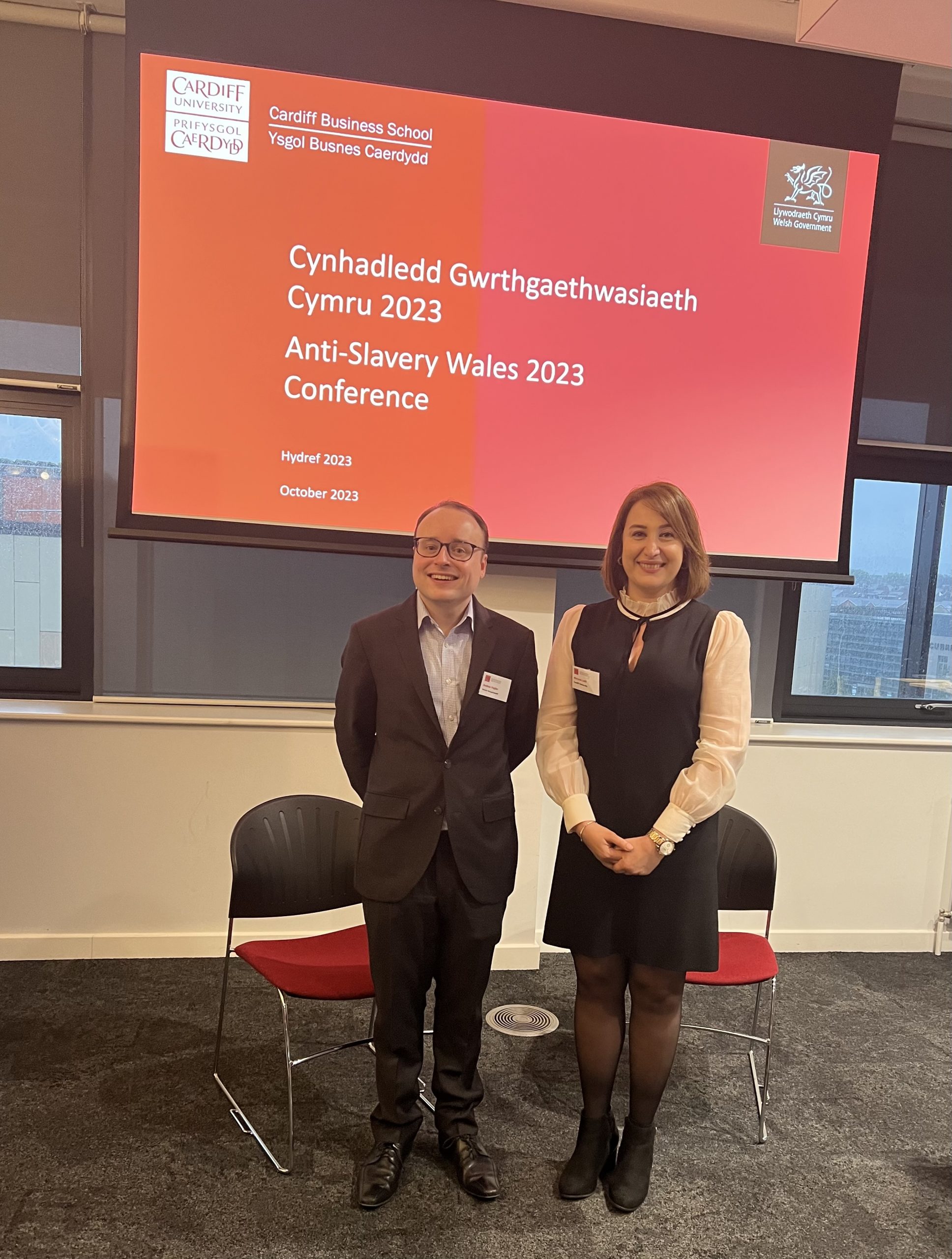 Anti-Slavery Wales 2023 Co-chairs: Mr. Joshua Vuglar, Head of Modern Slavery and Workers’ Rights at the Welsh Government, & Dr. Maryam Lotfi, Co-Director of the Modern Slavery and Social Sustainability (MSSS) research group
Anti-Slavery Wales 2023 Co-chairs: Mr. Joshua Vuglar, Head of Modern Slavery and Workers’ Rights at the Welsh Government, & Dr. Maryam Lotfi, Co-Director of the Modern Slavery and Social Sustainability (MSSS) research group
The conference’s opening resonated with powerful remarks from Professor Rachel Ashworth, Dean of Cardiff Business School, and MS Hannah Blythyn, Deputy Minister for Social Partnership at the Welsh Government.
Professor Ashworth, in her address, passionately asserted that every day should be treated as Anti-Slavery Day. She said, “We need to make sure all our efforts in this school make a difference to those being trafficked and to those being enslaved, whether that’s here in Wales or across the world.”.
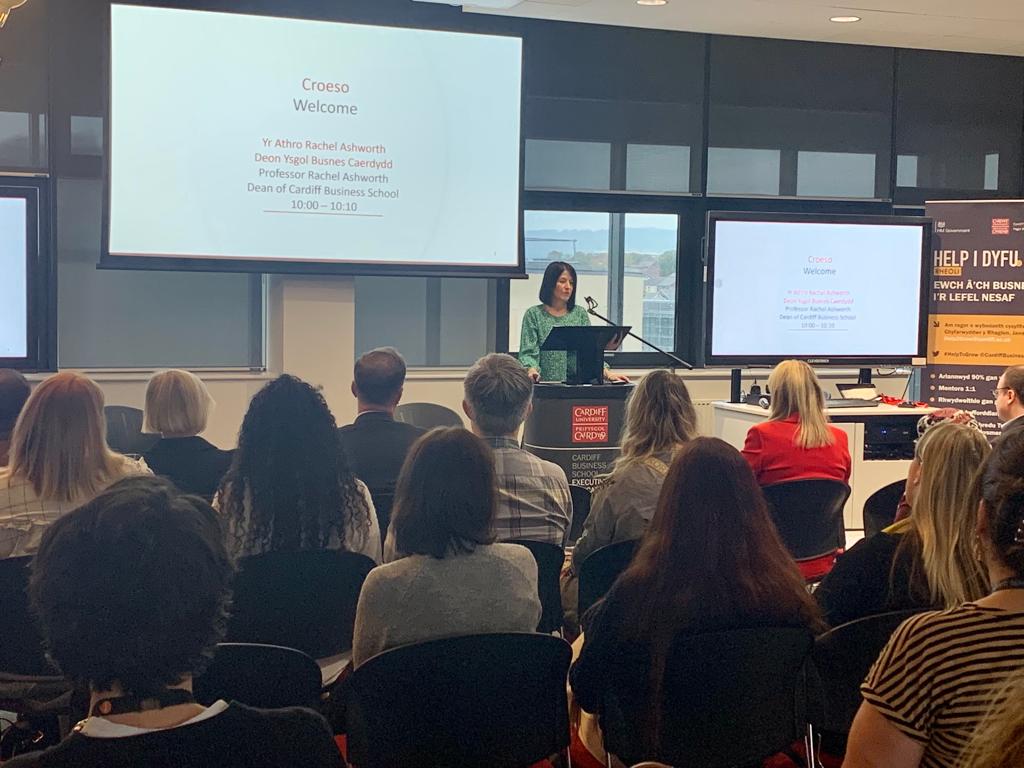
MS Blythyn, Deputy Minister for Social Partnership at the Welsh Government, expressed gratitude to Cardiff University for spearheading the establishment of the Modern Slavery and Social Sustainability Research Group.
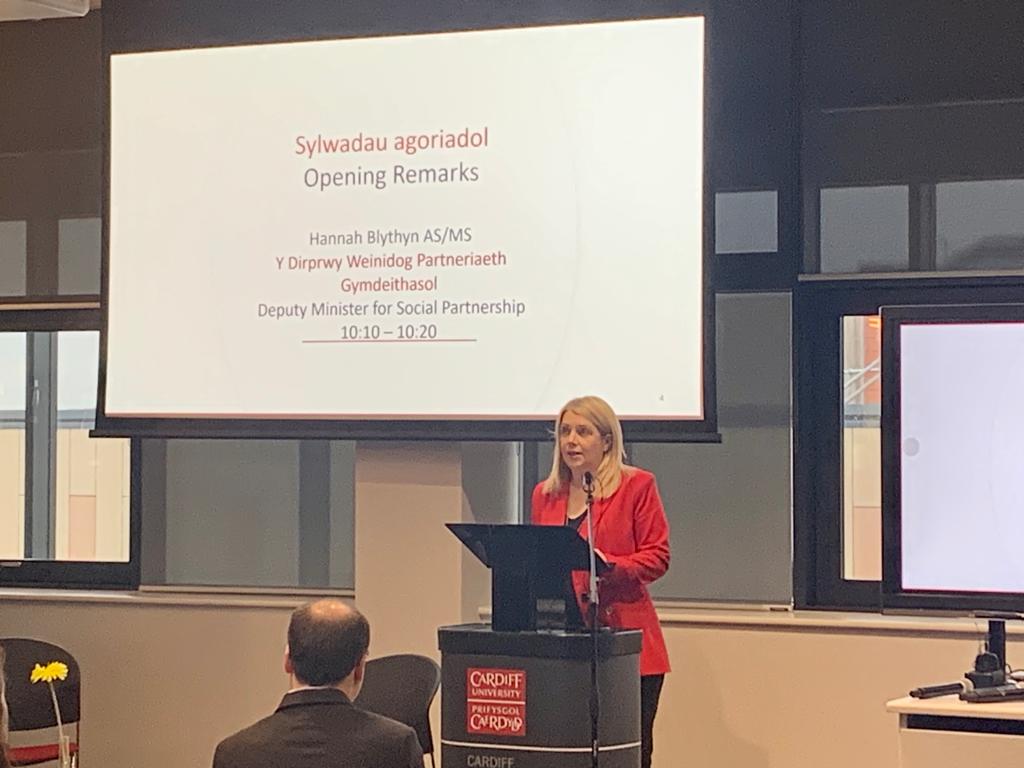
Dame Sara Thornton, distinguished former Independent Anti-Slavery Commissioner, took center stage as the keynote speaker, delivering a speech that keenly addressed current challenges in the fight against modern slavery. Among the challenges, she mentioned lack of enough data on modern slavery in Wales. She further adds “The UK government can do more to build on the Modern Slavery Act 2015 which was ground-breaking at the time”. Finally, she stated that there are some areas for optimism in relation to the UK and modern slavery: (1) there is an increased awareness of and focus on modern slavery in supply chains and this issue is less hidden. (2) there is increased engagement of investors in tackling modern slavery and improving the social sustainability of investments and recognising the risks that modern slavery pose to business (3) there is an increased focus on survivor voice.
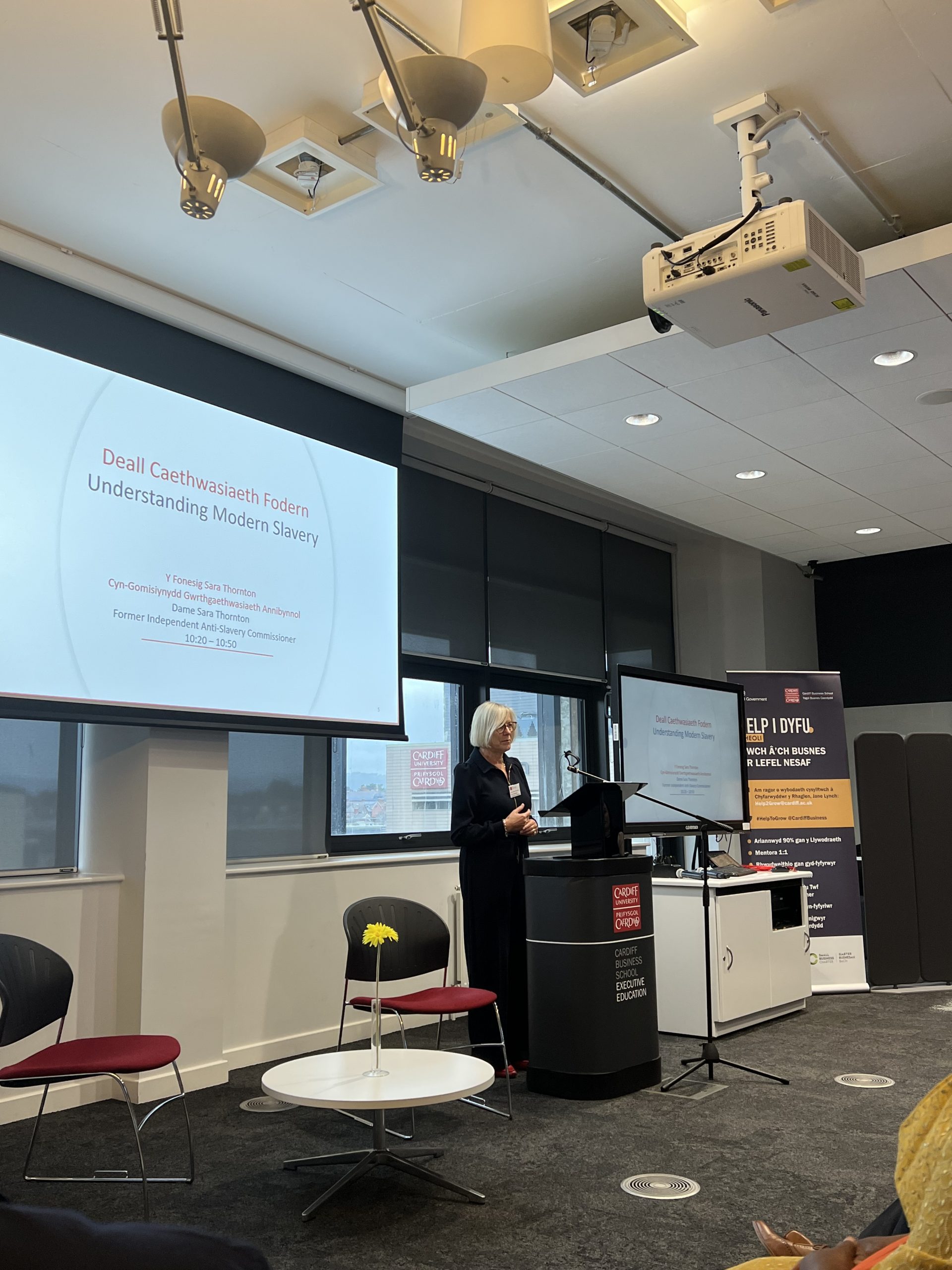
Dr. Maryam Lotfi contributed a compelling talk on the intricate theme of modern slavery within global supply chains, emphasizing the transformative power of research in effecting international change. Her insightful perspective on tackling this complex issue through a “Zoom in – zoom out” approach added depth to the discourse.
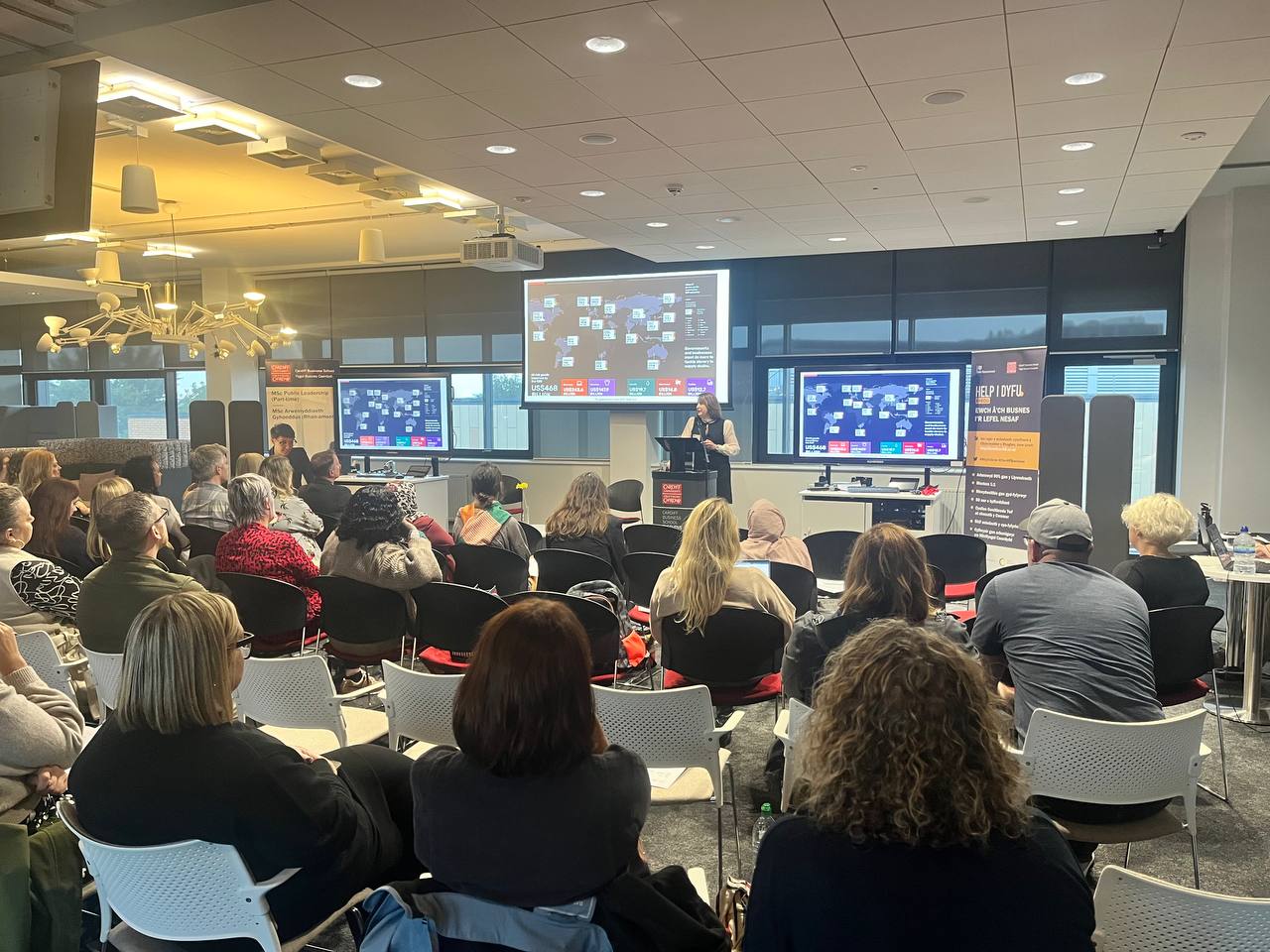
The morning session unfolded with a series of impactful speakers, setting the stage for dynamic panel discussions in the afternoon, featuring the invaluable participation of survivors. Both in-person and online, the conference attracted a total of 212 attendees, underscoring its significance as a well-attended and substantial event dedicated to addressing the critical issue of modern slavery in Wales.
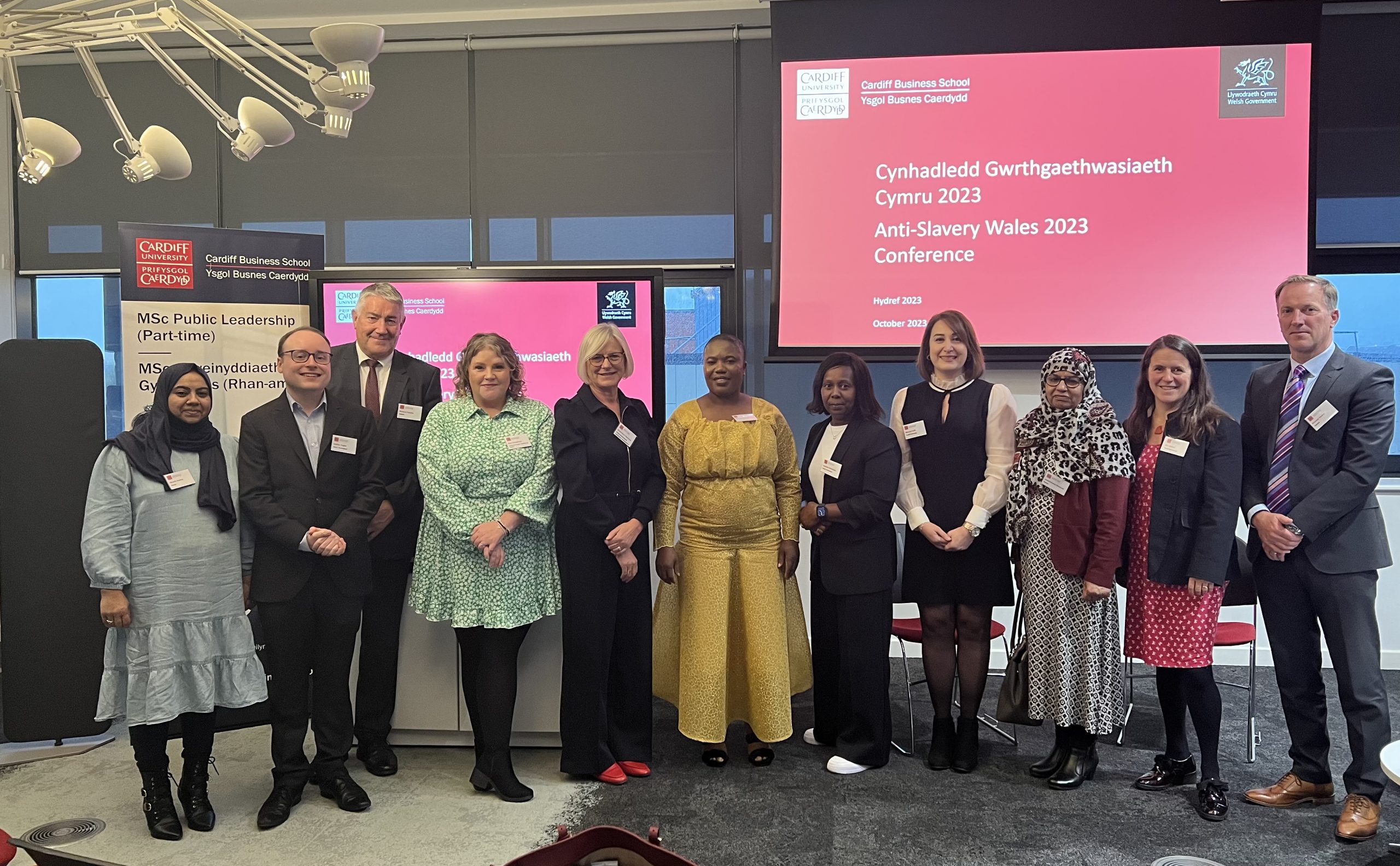
This collaboration marked a groundbreaking initiative, being the first of its kind between universities and government bodies, focusing on a critical issue—modern slavery. It stands as a shining example of how collaboration between academia and governments can amplify efforts and generate significant impact.